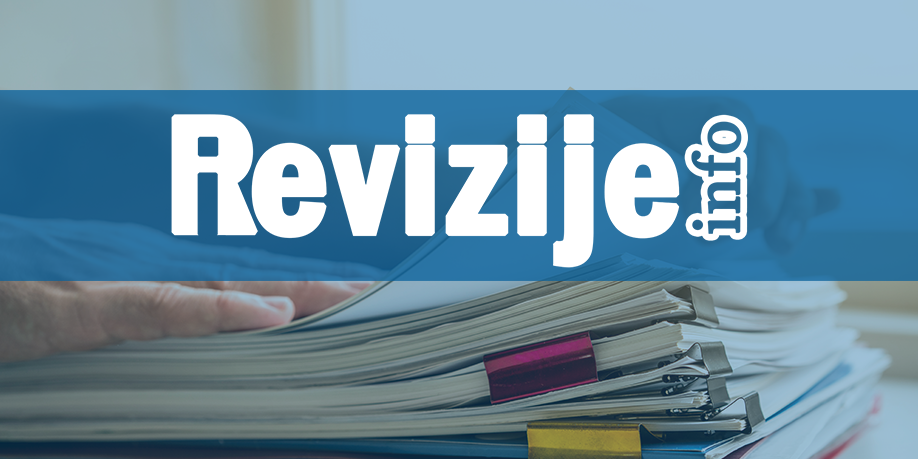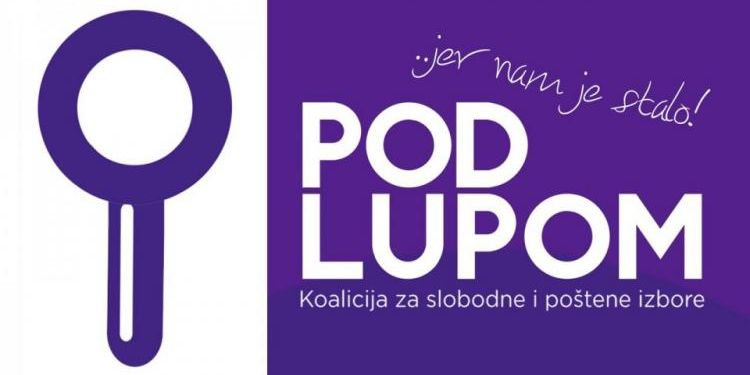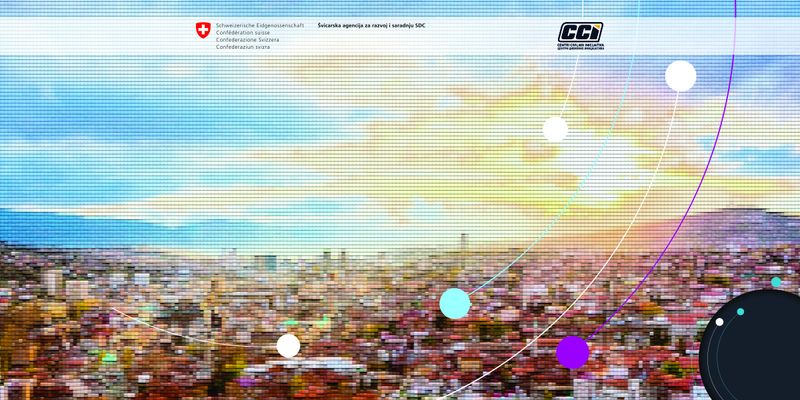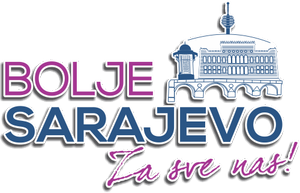
Visit of CCI delegation to the parliaments of Slovenia and Austria. During the period from 8 to 14 May 2011 the CCI representatives made a study visit during which they had an opportunity to visit the parliaments and other institutions in Slovenia and Austria. CCI representatives were received by the representatives of both homes of the Republic of Slovenia Parliament, and numerous meetings were organized too with MPs in both homes of Slovene and Austrian Parliaments. The goal of these meetings was sharing of experiences in cooperation of parliament members and citizens, in the ways of functioning of MPs’ offices and parliaments and among the electorate, solving the key problems of citizens, legislative procedure, MPs' remuneration and their other rights.
For five years already CCI has been engaged in monitoring the work of parliaments and governments in BiH (cantons, entities and state level) in order to contribute to making sure that the elected representatives, MPs and the ministers are more responsible and more transparent in their work, and that the work of the authorities is more efficient and effective. In order to improve the monitoring of work of the institutions of legislative and executive power, in cooperation with USAD who financial aided this regional project, CCI organized a study tour to the parliaments and other institutions of the European Union countries – Slovenia, Austria, Germany, Slovakia and the Czech Republic, as well as a visit to Switzerland. Austria and Slovenia were visited during the period from 8 to 14 May, while a visit to Germany was planned for the end of May.
The CCI delegation, comprised of nine members and led by the executive director Zlatan Ohranović, was joined by a three-member TV crew, who had a task to record all the significant details of the visit and make a few documentary programs of them, that will be shown to BH public.
In Slovenia and Austria, in addition to BH ambassadors (HE Zdravko Begovic and H.E. Haris Hrle), the CCI delegation was received by dr Pavel Gantar, the president of the National Assembly of the Republic of Slovenia, and Blaz Kavcic, the president of National Council of the Republic of Slovenia. A number of meetings were organized with the representatives of certain parliamentary departments and groups in both countries, as well as with the institutions for employment and health insurance, Agency for Fighting Corruption in Slovenia and representatives of Transparency International Austria.
Learning about the positive experiences of democratically developed countries is of extreme importance for CCI, in its efforts to make use of the partner cooperation with legislative and executive institutions as well as of goods practices from developed countries, to improve the living standard of BH citizens and accelerate its advancing toward Euro-Atlantic integrations.

Report on the Situation Regarding Citizens' Participation in Decision-Making Processes in BiH for 2010, presented in public. For five years already CCI has been monitoring and analyzing the situation regarding citizens' participation in BiH. The results for 2010 show that the authorities are still firmly holding on to the decision-making, far away from the citizens' influence. Thus, the citizens are only allowed to participate in consultations and even this is difficult for majority of citizens. Participation of citizens in decision-making processes in BiH exists only in theory and there are no signs of the authorities changing their attitude in terms of leaving more room for citizens’ influence. This survey as well as publishing of the report was financially aided by the Embassy of the United Kingdom in BiH.
Survey of the situation regarding citizens' participation included the analysis of the legal framework related to citizen participation, as well as polling the citizens on their own participation in local decision-making. Legal instruments defining the possibility of citizens to participate in decision-making processes were analyzed. (BiH Constitution, entities' and cantons' constitutions, Rules of Procedures of Parliaments as well as of selected municipalities and laws on local self-governance in RS and FBiH, and By-Laws of 14 municipalities covered by the survey)
Inclusion of citizens in decision-making processes and the development of participatory democracy is supported by the elected representatives in BiH only in a declaratory manner, during the pre-election campaigns. Things are quite different in reality. BH citizens almost have no influence at all on making decisions in the country that they live in. As in the previous years, CCI's survey showed that the authorities of this country did not make any significant steps toward the affirmation of citizens' participation in decision-making processes.
The results of the opinion poll conducted among public servants show scarcity of information that they have about citizens’ needs and views regarding their inclusion in decision-making. Only 28% of public servants believe that the local community is the main mechanism for citizens' participation, while 80% of the citizens are of that opinion. 82% of public servants believe that the information about the manner of participation is to a large degree available to the citizens, while, at the same time, 46% of the same servants identify lack of information as the second most important problem impacting the absence of citizens' inclusion in decision-making. 86% public servants have confidence in the work of local authorities, while only 19.3% of citizens agree with that assertion.
Only one third of interviewed citizens participated or knew someone who participated in decision-making through the local community. On the other hand, 80% of citizens believe that citizens should participate more in decision-making. The trend of increase of citizens’ activities in 2010 is reflected in increased membership in non-governmental organizations (5% more compared to previous years); 8% of citizens initiated a meeting with the representatives of the authorities because of a certain problem. If we add to this the fact that the awareness of citizens about the mechanisms of participation was raised during 2010 (citizens' initiative 11.6%, public debate 11% more), it is clear that the citizens are trying to impose themselves on the authorities, since the latter are not doing enough on citizens' inclusion themselves.
1000 citizens and 100 public servants from 14 target municipalities throughout BiH took part in the survey. (Survey was conducted in the following municipalities: Banja Luka, Bijeljina, Gradiška, Teslić, Trebinje, Zenica, Čapljina, Mostar, Prozor, Doboj, Sarajevo, Tuzla, Srebrenica and Bihać.)
Full survey is available at www.ccibh.org in the local language.
The new CCI's campaign Reducing the Use of Plastic Bags in BiH is directed toward making system solutions to the problem of pollution of the environment. By the number of disposed bags, BiH is the most polluted country in the region. Besides a number of plans and strategies adopted by BH institutions, there are unfortunately no concrete measures and actions, in the sense of the principled waste management and decrease of the quantity of waste for final disposal. The campaign is implemented in cooperation with CRP Tuzla, as part of the project Decrease of Use of Plastic Bags in BiH, financially supported by the Delegation of the European Commission in BiH.
Inadequate state legislation, low environmental consciousness and habits of the citizens of Bosnia and Herzegovina, have resulted in Bosnia and Herzegovina being the most polluted country in the region. A visit to a picnic area beside the river or the forest is enough to get a grim picture created by the tons of waste discarded as plastic bags, plastic bottles, various packaging, etc. Beautiful nature and biodiversity that we have and that we should cherish is being destroyed because of our negligence, low level of ecological consciousness, and at the end, by selfishness. The lives we lead are guided by the principle: „I want to live as comfortably as possible, without any effort, all that matters is that I’m enjoying myself right now and I don’t think about the consequences, I don’t even want to know about them, let others think about it“. At the same time, the state failed to adopt the regulations that would govern production and trading of plastic bags, thus failing to use a certain level of repressive measures to influence „consciousness“ of citizens.
All this is a reason why, at the beginning of 2011, CCI started a project „Reduction of Use of Plastic Bags in BiH“, financed by EU, which aims at thorough governing of this area, in the sense of development, adoption and implementation of public policies that will regulate this field in detail. At the same time, the goal of the project is to affirm environmentally-responsible behaviour and thinking of citizens and closer relation of the individual to the nature. The activities are carried out in the territory of the whole of Bosnia and Herzegovina, by CCI and the partner CRP Tuzla, who will be joined by other interested organizations.
At the initial stage of the Project CCI prepared and published the Analysis of Use of Plastic Bags in BiH. The problems with plastic bags, besides other factors, appear because, due to their being thin and their cheap production, they are distributed free of charge in retail outlets and are thus disposed in the nature in large quantities. Namely, they are most often disposed of by the citizens after a very short time of use (according to the surveys, this is about 12 minutes on the average). Another problem is presented by the fact that in households such bags are filled by garbage and they get to the waste dumps thus prolonging the period of decomposition of garbage contained in them as well as of the garbage that they are directly in contact with. Also, they are making the process of separation of waste more difficult, because every bag must be torn out and emptied of the garbage, so that the two can be separated and that possible recycling can be made afterwards. The period of decomposition of a plastic bag is between 400 and 1000 years, depending on the environment in which it is located. According to official data, there are about 100 million pieces of plastic bags used annually in BiH.
In addition to the findings stated above, as part of the conducted Analysis, CCI provided a number of possible models for solving this problem, and all of them imply repressive, rather than educational methods, because no-one is ready to wait another 100 years to see the result. Simultaneously with publishing of the Analysis, on the eve of the Day of Planet Earth, 21 April 2011, CCI announced the beginning of the campaign „Not for Throwing Away“, with the main message plasticbags.no, that will be directed in two ways, toward the citizens and toward the decision-makers. The press conference was held in the open, at the location of Eko Center on Lake Bocac, together with the Ministry for Spatial Development, Construction and Ecology of the RS. Minister Srebrenka Golic took an opportunity to publicly declare willingness to cope with solving of the problem of plastic bags. The first step was to found a working group composed of all interested parties, that should propose an optimum and enforceable solution in BiH. After holding preliminary meetings with other competent ministries in RS and FBiH, a clear support to the planned activities was received, as well as firm promises that they will join the process of solving this problem. The announcement of the campaign draw great attention both by the media and the public, and was followed by some TV footage and newspaper articles dealing with this field.
As part of the next steps, a working group should be formed which should start working on the model of uniform public policy to be adopted at the level of the entities. In addition to competent ministries, the working group shall comprise producers of plastic, NGO sector and experts. At the same time, the activities on the campaign will be directed toward the citizens too, in order to influence their ecological consciousness and win their support for solutions that will be advocated.
Campaign Against the Corruption in Healthcare Sector was officially launched in April as part of the Project Fight for Your Rights. CCI, as an initiator of the campaign, along with eight public healthcare institutions in BiH, will make efforts on finding system solutions for the prevention of and fight against corruption in healthcare sector and to additionally educate and inform the citizens about the rights guaranteed under the law. These activities were supported by the Embassy of Kingdom of the Netherlands.
In accordance with BH Strategy for Fighting Corruption 2009 – 2014, and the related Action Plan, all the public institutions in BiH are required to adopt their own rulebooks or plans for fighting corruption. By signing the Memorandum, the healthcare institutions that participate in the campaign together with the CCI, agree to adopt the rulebooks on prevention and fighting the corruption no later than by the end of 2011.
Memorandum on Cooperation was signed by the General Hospital „Prim.dr Abdulah Nakaš“ Sarajevo; Cantonal Hospital Zenica; University Clinical Hospital; Regional Medical Center „Dr Safet Mujić“ Mostar; Clinical Center of Sarajevo University; Clinical Centre Banja Luka; Universtiy Clinical Center Tuzla and Center for Heart BiH Tuzla.

In 4 Municipalities of Birac Region a team for project development and implementation was formed, as part of the Project Reconciliation and Development of Communities/Participatory Democratic Development. A study tour of team members to Banja Luka city administration was organized in May; the team comprised the representatives of Municipality Bratunac, Srebrenica, Milici and Vlasenica. During the visit, the members of the delegation had an opportunity to learn about the experiences of the city administration Department of European Integrations who shared with them significant experiences, methodologies of database development, potential donors’ directory. These activities were financially supported by the Swiss Agency for Development and Cooperation as well as by the Government of Lichtenstein.
At the very beginning of the project the Development and Implementation Team (RAP team) was formed. After the first meeting of RAP team, that was held in Zvornik at the end of March, aimed at building a basis for improved cooperation between municipalities Bratunac, Srebrenica, Milici and Vlasenica, through establishing and capacity-building of the team for accession to EU, and other donors’ development funds, the second meeting of RAP team was organized in May. Due to the planned study tour to the City Administration of Banja Luka, the second meeting was held in Banja Luka.
In the City Administration of Banja Luka, the team members from four municipalities were informed about the manner of functioning of that Department, as well as about the experiences in work. Three presenters from the Department of European Integrations shared significant information, methodologies for developing databases, potential donors' directories as well as the methods of their work, that could be of big assistance in the work and functioning of the RAP team, recently formed under the auspices of CCI.
In its future meetings with the team, CCI will work on concrete examples of project proposals. The plan is also to invite experienced experts engaged in European integrations, as well as the relevant persons who are directly dealing with project proposals and the use of EU pre-accession funds, who can communicate their knowledge and thus contribute to the success of work of the Team in the preparation of joint projects of municipalities.
The main goal of the project, in which CCI participates, is to promote dialogue and tolerance, through the activities on development of communities and citizens’ participation in decision-making processes in Birac regions (municipalities Bratunac, Srebrenica, Milici and Vlasenica).
Public Call for Projects opened throughout the year. CCI, as an implementer of the Civic Advocacy Partnership Programme II (CAPP II), which is financially supported by USAID, invites all interested non-governmental organizations to submit project proposals aimed at improvement and public advocacy of reform processes in the following fields: reducing unemployment, public consumption, anti-corruption, with the focus on corruption in health sector and education, the young, and other fields that will be identified at a later point. The planned maximum funds per project is 150.000 USD, and the period of project implementation may range between 3 and 16 months. More information by e-mail at ccido@ccibh.org.
Workshops in the field of ethics and anti-corruption were held in cooperation with Transparency International in schools throughout BiH. Lectures to teachers were given by the experts with the knowledge of the problem of corruption. Two documents were prepared Education of pupils on ethics and corruption and Terminology Guidebook for Anti-Corruption. Teachers showed great interest in these topics and undertook to discuss them with the pupils during the homeroom classes. These activities are undertaken as part of the Civic Advocacy Partnership Programme (CAPP II), which is financially supported by USAID.



















